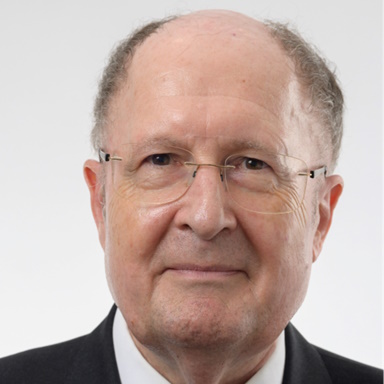Copley Medal | Royal Society (original) (raw)
The Copley Medal is the Society’s oldest and most prestigious award. The medal is awarded for sustained, outstanding achievements in any field of science.
- Opening date
29 November 2024 - Closing date
21 February 2025 - Winners announcement
29 August 2025
Exact date TBC
The award
The Copley Medal is the Society’s oldest and most prestigious award. The medal is awarded for sustained, outstanding achievements in any field of science.
First awarded in 1731 following donations from Godfrey Copley FRS (PDF), it was initially awarded for the most important scientific discovery or for the greatest contribution made by experiment. The Copley Medal is thought to be the world's oldest scientific prize and it was awarded 170 years before the first Nobel Prize. Notable winners include Benjamin Franklin, Dorothy Hodgkin, Albert Einstein and Charles Darwin. The medal is of silver gilt, is awarded annually, alternating between the physical and biological sciences (odd and even years respectively), and is accompanied by a a gift of £25,000.
Eligibility
The Copley medal is open to international citizens. It is restricted to senior scientists and nominations will remain valid and shall be considered by the award selection committee throughout three nomination cycles. Teams or groups may now be nominated for this award. In 2024, the Copley Medal will be awarded for the biological sciences.
Nominations are now open
Nominations are now open and will close on 21 February 2025.
2024 winner
Sir Gregory Paul Winter CBE FRS FMedSci
The Copley Medal 2024 is awarded to Sir Gregory Paul Winter CBE FRS FMedSci for pioneering protein engineering, especially antibody engineering for the successful production of therapeutic antibodies. Picture Credit: The Croucher Foundation
Past winners
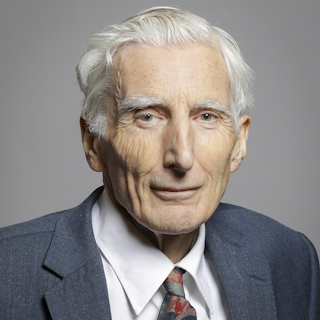
Awarded in 2023
Martin Rees
The Lord Rees of Ludlow OM Kt HonFREng FRS
The Copley Medal 2023 is awarded to Martin Rees (The Lord Rees of Ludlow OM Kt HonFREng FRS) for being arguably the most distinguished theoretical astrophysicist of his generation, responsible for numerous and varied conceptual breakthroughs, with influence spreading far beyond the specialist academic community.

Awarded in 2022
Oxford-AstraZeneca Vaccine Team
For rapidly developing and deploying a COVID-19 vaccine.
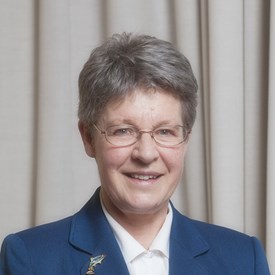
Awarded in 2021
Dame Jocelyn Bell Burnell
For her work on the discovery of pulsars, one of the major astronomical discoveries of the 20th century.
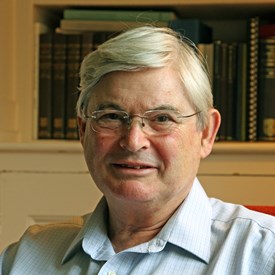
Awarded in 2020
Sir Alan Fersht FMedSci FRS
He has developed and applied the methods of protein engineering to provide descriptions of protein folding pathways at atomic resolution, revolutionising our understanding of these processes.
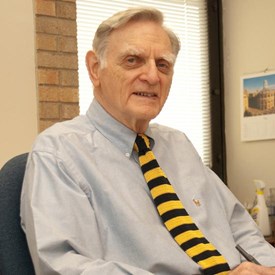
Awarded in 2019
Professor John Goodenough ForMemRS
In recognition of his exceptional contributions to the science and technology of materials, including his discovery that led to rechargeable lithium batteries.

Awarded in 2018
Professor Jeffrey Gordon
For his contributions to understanding the role of gut microbial communities to human health and disease.

Awarded in 2017
Sir Andrew Wiles KBE FRS
For his beautiful and unexpected proof of Fermat's Last Theorem which is one of the most important mathematical achievements of the 20th century.

Awarded in 2016
Dr Richard Henderson CH FMedSci FRS
For his fundamental and revolutionary contributions to the development of electron microscopy of biological materials, enabling their atomic structures to be deduced.

Awarded in 2015
Professor Peter Higgs CH FRS
For his fundamental contribution to particle physics with his theory explaining the origin of mass in elementary particles, confirmed by the experiments at the Large Hadron Collider.

Awarded in 2014
Sir Alec Jeffreys CH FMedSci FRS
For his pioneering work on variation and mutation in the human genome.

Awarded in 2013
Sir Andre Geim FRS
For his numerous scientific contributions and, in particular, for initiating research on two‐dimensional atomic crystals and their artificial heterostructures.

Awarded in 2012
Sir John Walker FMedSci FRS
For his ground-breaking work on bioenergetics, discovering the mechanism of ATP synthesis in the mitochondrion.
